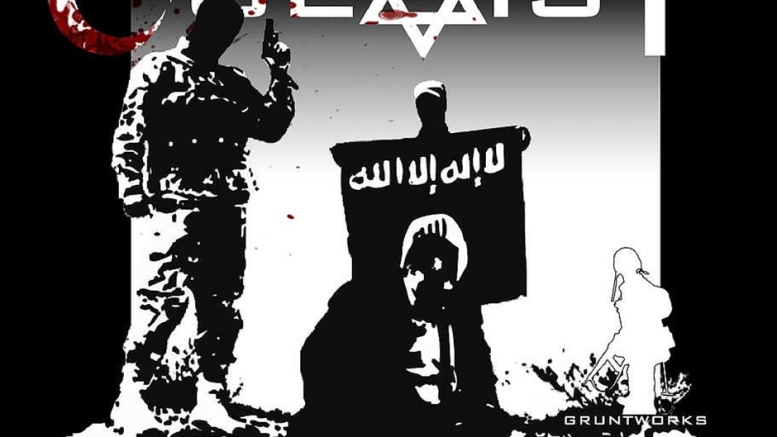I support the concept of religious freedom. Like Queen Elizabeth the First I am uncomfortable with the idea of the state having ‘windows on men’s souls’. A person should be able to follow their hearts and the deity of their choice in peace and freedom. In Britain we do have religious freedom and it’s a state of affairs that took a long time and much social and political trauma to achieve. However we also need to recognise that not all religions are equal or are equally peaceful.
I’m a beneficiary of religious freedom myself, I can worship in the manner that I choose without those from other faiths, or those of my own faith who disagree with me, violently attacking me or interfering with my relationship with my own deity. This is to my mind how it should be. It even doesn’t bother me that there is an established church, because I recognise that it performs a function, helps those who belong to it and can act as a form of ‘national conscience’ and comforter when times are bad. I’m a believer in antidisestablishmentarianism because the alternative is far worse, either a harsh version of state Christianity or a religious melange with everyone at each others throats fighting to be heard.
Britain has been genuinely spiritually and culturally enriched by the different types of Christians it contains along with its minority Hindu, Sikh, Buddhist and Jewish communities. We may have different deities and different doctrines but we are all human and that is a view common to all peaceful faiths. Britain is, as the former Chief Rabbi Lord Sacks once said: ‘the home we build together’ and in my view the bricks of this home are made up of the straw and clay of mutual tolerance and respect and those faiths that fail to respect others are weakening our shared home.
However, religious tolerance can only work if everyone, to mix a metaphor, sings most of the words of the same hymn sheet together. We as a nation can tolerate each others foibles such as diet or different Sabbath days and festivals, but this toleration can only exist so long as no one group takes the mickey and demands more respect or more resources than others or resorts to violence and aggression to advance their faith.
For decades Jews, Christians, Sikhs, Hindus and others have rubbed along pretty well. Yes, there’s been the occasional bits of tension, but on the whole people have made the effort, even if takes a bit of compromise, to get on.
But since the injection of Islam into British society this toleration has started to come under strain. Although I’m the first to admit that there are decent people of Muslim faith out there who do make the compromises necessary to get on, that doesn’t blind me to the fact that Islam as an ideology is different from every other faith. Islam does promote religious supremacism, it does engender violence and aggression in its followers and it does demand more places at the religious table than it deserves.
Most religious believers, of whatever faith, subscribe to the concept of ‘the law of the King is the law for everyone’ or in Hebrew Dina de Malkhuta Dina and provided that the King doesn’t tell me to do something hateful such as murder my neighbour in cold blood or be force me to eat a cheeseburger, then as far as I’m concerned that is that. The main laws should apply to everyone,but at present this doesn’t seem to be the case and we’ve had appalling instances where Muslims are allowed to get away, sometimes literally with murder and inciting murder. Yes there can and should be certain exceptions so that people can school their children in their own peaceful faith or eat the food they choose or wear a turban instead of a motorbike crash helmet, but these exceptions only affect individuals and not the wider society. People should be able to decide for themselves whether they send their child to a Christian or a Jewish or Sikh school or wear a crash helmet or follow the Kosher dietary rules as these are all matters of individual and familial conscience. Britain has managed to survive quite well with the civil law governing all, with only certain religious matters being dealt with by Church courts or in the case of Jews by the Beit din or Jewish courts.
The problem with Islamic Shariah law is it doesn’t confine itself only to those matters that are of no great consequence to the wider society, such as religious status or the management of clerics, it creeps into civil law and ends up being applied to everyone, irrespective of their religious belief. This to my mind is wrong. My Christian or Sikh neighbour should not be forced to eat Halal food, nor abide by Islamic dress codes or hide their religious symbols because Islam doesn’t approve. This is morally wrong in my view. There is no mutual respect or any damned respect at all for those who believe differently to Islam in Shariah Law.
It is beyond foolish for a society to look at Church courts or Jewish Beit Din and lazily think that Shariah courts and Shariah law can be treated the same as these other religious courts. They can’t. They are different, just as Islam itself is different.
If Britain is to retain its culture of religious freedom and freedom of conscience, then legislators have to realise that Islam and Shariah cannot be judged by the standards that other belief systems are held to. Because there is no ‘golden rule’ of the sort that many in Christianity and Judaism would recognise in Islam, then Islam is a special case and therefore has to be seen as a threat to freedom.
Because of the aggression and let’s be frank, bad, violent and arrogant behaviour seen from the followers of Islam there is a move by some, who are angry about Islam to want restrict all religious rights. Some see all religions as a problem and would like to remove the rights of the followers of peaceful religions to live by their own rules and follow their consciences. This in my view is not the way to proceed.
What is required is specific laws aimed at restricting the practise and manifestations of Islam. We need to recognise that our society is not threatened by Christians, even conservative ones, nor is it threatened by Jews or Hindus, but only by Islam and its followers. Yes, some say this would be unfair but how fair are Islamic societies to non-Muslims? The answer is not very. The solution to the conundrum of Islam taking advantage of laws and customs that respect religious freedom to aggressively advance, is not to treat all religions the same, and with the same disdain, but to treat Islam for the threat to these freedoms that it plainly is.
To give a few examples: We should restrict mosques but not temples, churches or synagogues. We should label halal to give everyone a choice. We should place greater restrictions on Islamic schools than we do on Christian, Jewish and other schools. We need to place controls on Shariah Law and take back control of those areas that are being run for the benefit of Muslims but nobody else. We need to show communal and legal opprobrium to the hijab, niqab and burka but not the nuns habit, kippah or the Buddhist robe. This is not unfair, this is a sensible approach to take to a belief system that openly states that it wants many of us non-Muslims either dead or enslaved. Islam is killing religious freedom in the UK and religious freedom needs to be protected, both for those who hold religious beliefs and for those who do not.
It would be foolish and unjust to make everyone suffer merely because there is a need to control Islam. We need to recognise that Islam is showing the most appalling enmity to all of us and deal with this problem and this problem alone. We need to name this enemy, which is not ‘Islamism’ or ‘jihad’ but Islam itself and take steps to control and defeat it via Parliament, the courts and the wider society. Britain needs a Control Of Islam Act and we need it soon.





